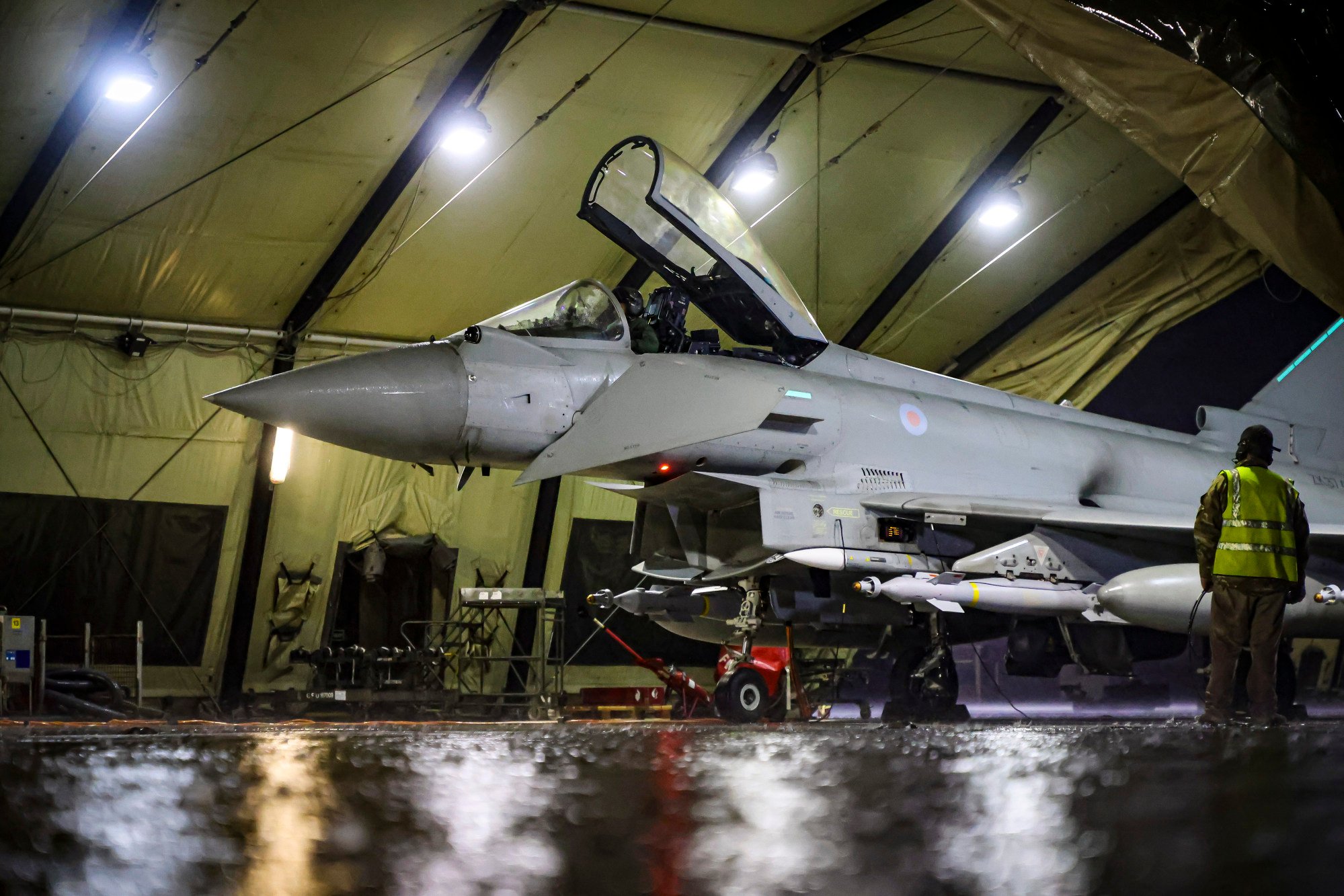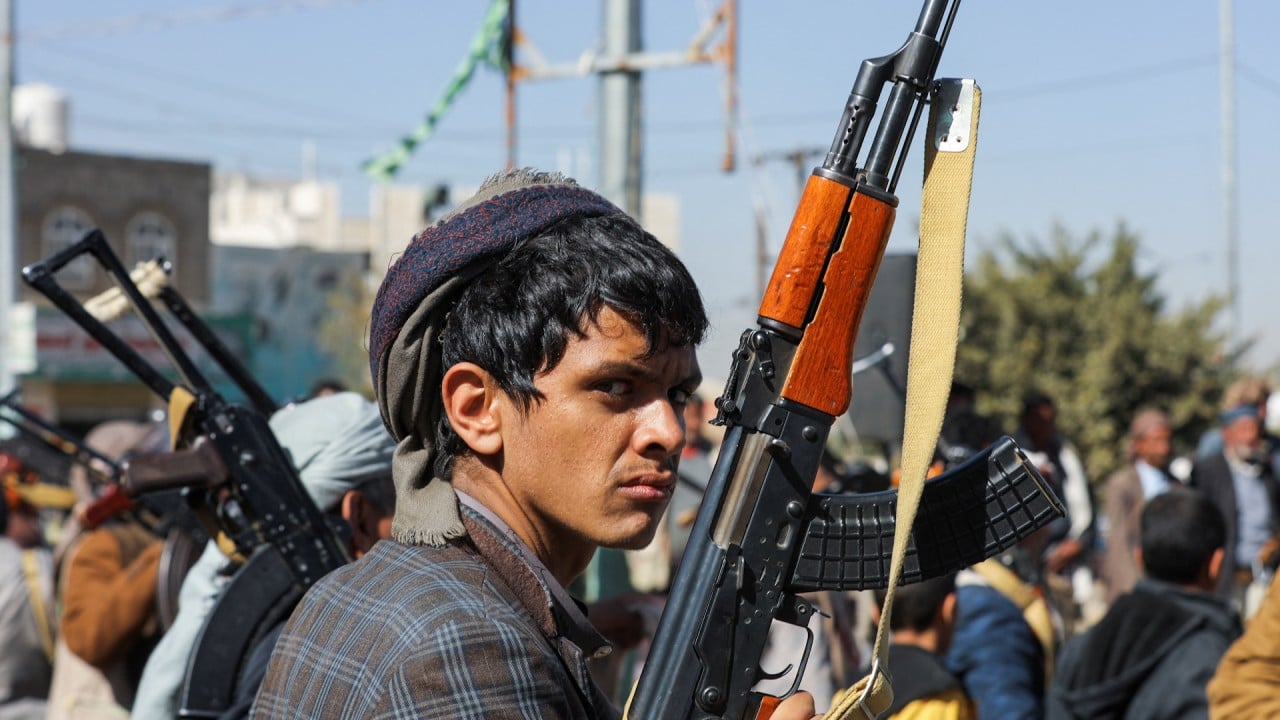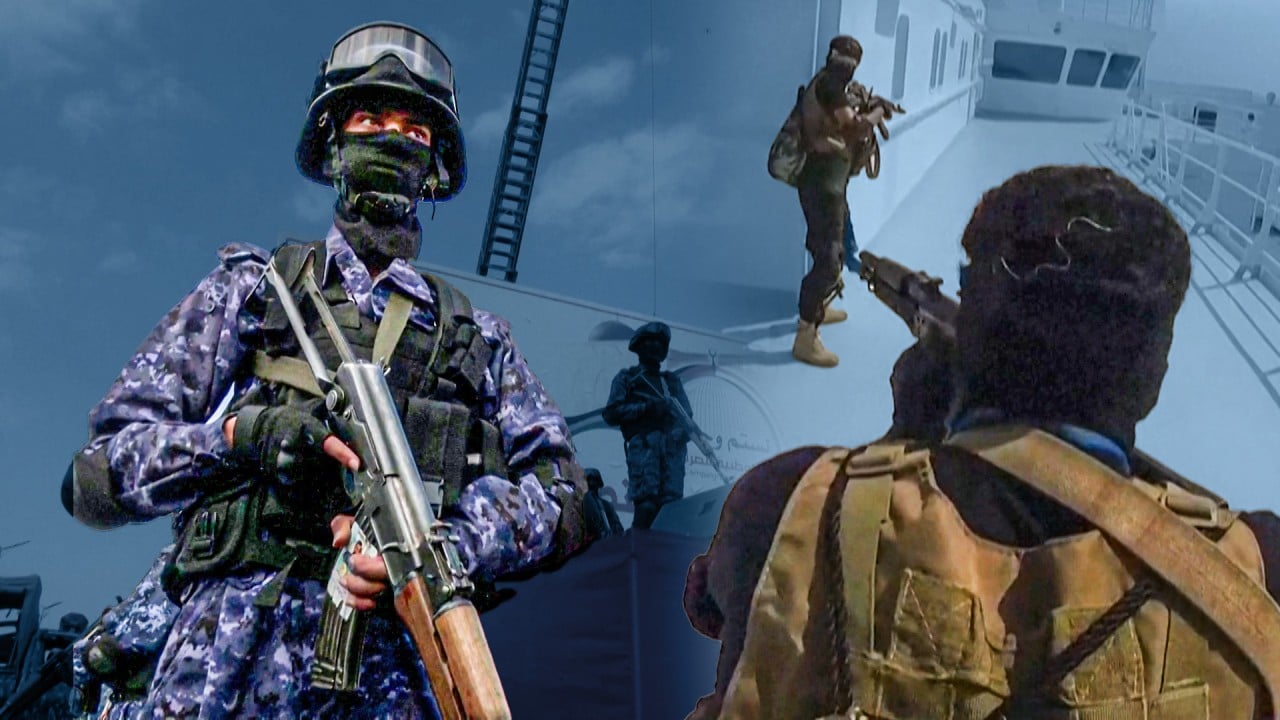
Great power lite? Why China is reluctant to wade into the Red Sea crisis and join US-led attacks on Houthis
- Beijing has called for an end to the attacks on the ships and expressed concern over the escalating situation
- But it is unlikely to play a bigger role in resolving the conflict, affecting its global standing, analysts say
In response, a US-led coalition of more than 20 countries ranging from Britain to Bahrain has banded together to safeguard commercial traffic in the Red Sea, including launching air strikes against the Houthis.
Instead, Beijing’s approach has been to call for an end to the attacks on the ships and express concern over the escalating situation.
Observers say China’s cautious response is consistent with its general approach to Middle East crises and is unlikely to change unless the attacks dent its trade and commercial interests.
But, they say, the caution also reflects a lack of leadership and capacity in a country seeking to establish itself as a world power.
“It certainly does not show any appetite for acting as a major responsible power,” said Ori Sela, an associate professor at Tel Aviv University.
“While China maintains a clear rhetoric on maintaining peace and stability, in practice, so far, it seems as though China has little capability to deliver either in terms of military power or in terms of diplomacy.”
One contributing factor, according to David Arase, resident professor of international politics with the Hopkins-Nanjing Centre for Chinese and American Studies, is that Chinese vessels have not been attacked by the Houthis, meaning China has little interest in taking on a bigger responsibility in the conflict.
Even when Chinese imports and exports carried by non-Chinese ships have diverted their routes resulting in higher costs of goods, Beijing would rather absorb these costs than “align with the US … or assume costly security commitments in that volatile region”, Arase added.
As a result, China had no commitment to ensure stability in the Red Sea or to defend international navigation rights – and it was not eager to assume one.
This left Washington with the burden of protecting freedom of navigation and Beijing with a “free ride”, he said.
US national security adviser, top China diplomat to meet in Thailand
Despite continued strikes on Houthi targets, the attacks on shipping persist, a situation that China is using to reflect the failure of the US-led world order and show its own efforts in a better light, according to Sela.
“China sees an opportunity here to use this ‘failure narrative’ in order to demonstrate later on that China’s ‘world order’ is superior to the US,” he said.
However, the Red Sea conflict had instead shown the “volatility and fragility” of China’s successes in the region, in particular, the deal it brokered between Iran and Saudi Arabia, he said.
The Financial Times reported last week that the US asked China to use its leverage over Iran to rein in the Houthis as there were little indications of Beijing doing so.
Sela said countries had low expectations of Beijing stepping up as a leader but they would “expect a little more diplomatic engagement from China”, especially with Iran.
The continued attacks by the Tehran-backed Houthis “undermine the whole Chinese narrative” of the impact of the deal.
“The situation in the Red Sea has exposed China in its real size: economically very significant in the region yet a very far stretch from actually being a world power,” Sela added.
“Laying low at this point might help China get away with it,” he said.
US national security adviser holds ‘constructive’ talks with Chinese foreign minister
Jeremy Chan, a senior analyst at Eurasia Group, similarly suggested that China’s muted response stemmed from its view that the Red Sea attacks were a “direct outcome” of a failure to achieve a lasting ceasefire in Gaza, a failure that it pinned on the United States.
Under these circumstances, Beijing would not support Washington, be it condemning the Houthis or conducting joint naval patrols in the Red Sea – a move that would work in the short term but not in the bigger picture.
“My assessment is that this a savvy move from the narrow perspective of Chinese interests but a silly move for a country that has designs on being a global leader,” Chan said.
According to Andrew Scobell, distinguished fellow for China at the US Institute of Peace, China has mostly performed as a “great power lite” in the Middle East, where in spite of being an economic heavyweight, it remained a “diplomatic lightweight and a military featherweight”.
“With a few notable exceptions, Beijing has made modest largely pro forma gestures at diplomacy albeit with principled calls for dialogue and peace while militarily China has employed a ‘soft’ footprint in the Middle East,” he said.
“It has learned how to talk the great power talk but is still learning how to walk the great power walk.”
But Wang Yiwei, an international relations professor at Renmin University, said China’s position was not just about taking a side – it had to support the rights and interests of all parties, particularly developing countries.
“It’s not simply about condemning and supporting one side. China’s position must be about continuity and consistency,” he said.
Developing nations would want China to adopt a “fair stance” and “speak for the Arab world”.
Alvin Camba, assistant professor at the Josef Korbel School of International Studies at the University of Denver, said China’s response showed that it was “tiptoeing between being a global leader … and forwarding its geopolitical interests”.
A world leader would ensure safety of all commercial vessels regardless of their political stance, he said, but only Chinese and Russian vessels had reportedly been assured safety by the Houthis.
“China is trying to have it both ways, doing little in the process yet achieving the desired outcomes of both,” he said.
Camba added that China’s leadership could be hurt as it portrayed itself to be a “less responsible” leader.
“It sends a message that if you do something to harm the West and you don’t do anything against us, we will not do anything to harm you.”
China has very little power projection capability in the Gulf and certainly isn’t willing to get embroiled in a larger conflict
Arase suggested that Beijing would look to gain some “leadership points” such as by calling for a wider regional discussion but that would seem like China was advancing its diplomatic agendas “at no material cost”.
William Figueroa, an assistant professor at the University of Groningen, said Beijing did not want to be seen as supporting a group that threatened the stability of the international shipping system and it did not want its own regional projects to be hampered by a wider regional conflict.
At the same time, it was aware of the relationship between the Houthis and Iran, as well as its limitations in influencing either party.
“This is, I think, consistent with China’s long-term approach,” said Figueroa, who has researched China’s relationship with Middle Eastern countries.
“It’s the only position that makes sense because what else can China do? China has very little power projection capability in the Gulf and certainly isn’t willing to get embroiled in a larger conflict.”

China was likely to maintain its existing position longer than many expected, particularly as its vessels had not been thoroughly affected, Chan said.
And as long as Gulf Arab states – with which China’s key commercial interests lie – maintained a similar stance, Beijing would “most certainly stay on the current course”.
But there could be growing pressures for China to do more if the Red Sea attacks continued. Arase said investments and partnerships in China’s Belt and Road Initiative could be damaged.
But he also noted that these projects were typically enduring and long term, and would likely outlast the crisis.
Would China play a bigger role? Likely not, according to the analysts.
While China could do more, such as put greater pressure on Iran, Beijing was often hesitant to do things that did not guarantee success, Sela said.
Pressure on the Chinese government would grow, however, if Chinese businesses suffered from the outcomes of the Red Sea conflict. That, Sela said, would be the “only reason” that could get Beijing to change course.
“Although China’s economy faces uneasy challenges, it seems China can endure a few more months. Perhaps China believes that as the summer approaches it could use the Arctic routes more, thereby mitigating the effects of the Red Sea issues,” he said.
“In any case, it seems China assumes that since many other countries suffer from the Red Sea attacks, they will solve it somehow.”



